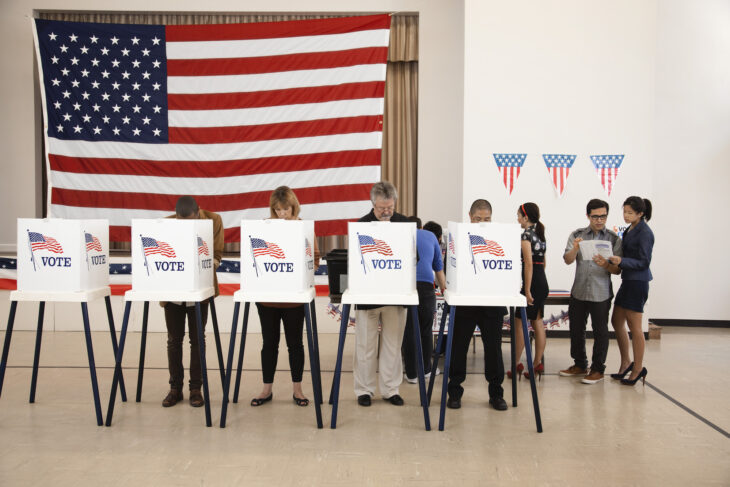The past decade has seen an increase in what I feel are truly interesting topics. These are the prevalence of fake news — in some cases propaganda, in other cases basic lies — as well as the question of whether the Internet will eventually be censored. If these topics are viewed as separate issues they are interesting, but if they are viewed through the same prism then it shows us a side of humanity which is little documented, that is in a way easily accessible to the lay-person but constantly exploited. However, before we look at these issues as a whole we should first look at them in their parts.Fake news is not a new thing. It is an ancient tool utilized by both statesmen and generals as those who have read Sun Tzu and Machiavelli can attest. Fake news would be along the lines of invasion of Poland when ethnic German-Polish commandos seized a radio tower in Poland and radioed across the border that the Polish army was on the move (it was already mobilized).
Fake news is simply a blatant lie lost in the fluff of truth or facts on the ground. It is in and of itself not hard to disprove. The French and British knew almost immediately that the Germans were the provocateurs. All it takes is a little research — as the communists did during the time of Stalin’s purges — and that leads us neatly to the second topic of major discussion.
The Internet is our generation’s gift to posterity in the same vein as the gift which was the printing press. To say that the Internet is as of great importance as the printing press is not a mere trite statement or some hallmark quote. The net, like the press, has made a lasting impression on humanity. The printing press allowed the masses of people to read books in their own vernacular thus increasing their knowledge. And that in turn led to the shattering of many Chinese dynasties as well as dozens of European monarchies and powerhouses, most notably Martin Luther and his works which led to a complete re-organization of Europe when the dust settled.
The same can be seen with the Internet, only on a global scale. Now, books in English are translated to Swahili online and available at the click of a mouse on the East African coast. The Egyptian revolutionaries of 2011 were quoting Chomsky and Tariq Ali and were organized in no small part by the Internet which provided a means for mass (and in some cases secure) communication.
The debate raging now is, will the Internet, much like books, be censored? It is obvious, on the face of it, why books were banned. The books contained information which ran counter to what was the current dominant school of thought or posed a direct threat to the then ruling classes. Mass vernacular versions were banned and burnt. Voltaire was banned in certain areas as was the book The Rights Of Man and most notably the Communist Manifesto. All these books were banned because they posed a threat to the ruling interests.
It was no longer possible to kill a man and all his followers and thus end a movement, or throw it into the sea of irrelevance such as the Arian Christian sect. The same can be seen with what is happening now with the Internet, so the argument goes.
With the great fire-wall of China, with the downing of Telegram in Iran and with the constant demonizing of Wikileaks (the Five Eyes) and Wikipedia (Turkey) we can see where the Internet is being cultured and pruned much as books were, until it becomes nigh on impossible to gain access to certain information unless one is really driven.
This may seem like a lot of work for a little reward until one understands that most people who end up in the throngs of a revolution China, Iarare not dyed-in-the-wool revolutionaries. Where are the masses, for example, in Egypt now? What’s more, the net, like the printing press, will be and currently is used against perceived ‘enemies’. Instead of masses of paper pamphlets aiming to counter rising anti-Catholic feelings. We now have Internet bots writing posts aiming to counter the feeling that today’s elites have lost the plot in a major way.
Things get really interesting when you realize that fake news and censorship go hand-in-hand. As mentioned before, fake news is nothing new. People have been utilizing it for centuries. What makes it so influential and insidious in this modern era are two things; firstly the Internet, which gives us access to news and information anywhere and on any topic, and secondly the age-old human foible of looking for what agrees with our world views.
This was made evident in the last US presidential election as well as the Brexit vote when blatant lies were allowed to remain and even gain serious traction because the net allowed the information to be rapidly dispersed and the fake news/lies neatly fitted with some people’s world views, most notably on their Facebook and Twitter pages.
Censorship becomes all the more easier again, as seen with the mentioned elections. Following these elections we have had Wikileaks branded an enemy of the US state and we see both the US and UK taking major steps to ban a broadcasting network which mainly operates online (RT and Sputnik). The average people in the streets of these nations are baying for blood and censoring of these outlets, aided in large part by ‘facts’ from the fake news they get through their pruned, online and real life (see Washington Post and The Guardian) news feeds.
The Internet will be censored in some fashion. That is inevitable, as it theoretically allows too much power to go to those who ‘shouldn’t have it’ despite the fact that the net, like the book, is mainly being used for pleasure. However, it probably will not go the way of China with the great fire-wall; instead, it will be as it was in the old days.
The majority of the people will demand the censorship this time. They will demand it because it does not fit view and that alone makes this era more interesting and dangerous than others. For during times gone past, it was the powerful who sought to restrict knowledge while the masses strived to ease that restriction. This time, however, the masses are playing right into the hands of the powerful.
The answer to all of the above isn’t difficult to find. It is actually very simple and almost everyone at one point in time has mentioned it. Simply do the research. People however don’t work that way and as such we are left with a world where people watch cat videos on loop, self-censor and tow the dogmatic line. Just as in the days of Robspiere and Boukman it is up to those who want freedom to seek it and impart it on others, while agitating for an end to censorship. Zack Smith Authentic Jersey



